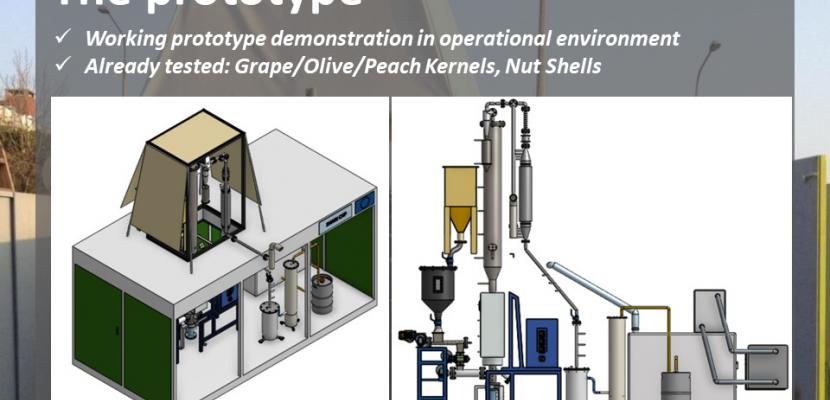Image

Use of organic residues for energy production
Published on 07 August 2018

Greece
Kentriki Makedonia
This is the good practice's implementation level. It can be national, regional or local.
About this good practice
Modern industries face high energy bills and produce large quantities of by-products, which even though they could be utilized in their processes providing added value, they are now disposed as wastes. BIO2CHP offers an innovative, bio-based circular economy solution allowing the utilization of the residues' energy content on-site, to cover most part of the energy needs. Feedstocks that are usually applied include solid agricultural residues, food industries residues, sewage sludge, etc.
BIO2CHP combines two established technologies, gasification and gas engines, which are brought together through an automated control system, allowing energy production in small-scale applications at a price 3-4x lower than the grid curently available in Greece. A working pilot has been developed and proved its potential for operation in real life conditions using up-to-date: grape pomace, peach kernels, olive kernels and almond shells. The whole system is included inside a container and operates at a standalone mode. The system uses the raw residual biomass that is currently treated as waste or goes to low added-value channels, for the on-site heat and power production, minimizing both energy and waste handling costs.
Small and medium industries in the agro-food sector are the final beneficiaries who manage to dispose their waste in sustainable way and generate energy for the needs of their facility.
BIO2CHP combines two established technologies, gasification and gas engines, which are brought together through an automated control system, allowing energy production in small-scale applications at a price 3-4x lower than the grid curently available in Greece. A working pilot has been developed and proved its potential for operation in real life conditions using up-to-date: grape pomace, peach kernels, olive kernels and almond shells. The whole system is included inside a container and operates at a standalone mode. The system uses the raw residual biomass that is currently treated as waste or goes to low added-value channels, for the on-site heat and power production, minimizing both energy and waste handling costs.
Small and medium industries in the agro-food sector are the final beneficiaries who manage to dispose their waste in sustainable way and generate energy for the needs of their facility.
Resources needed
The technology was developed in the framework of an EU LIFE+ project lead by Aristotle University Thessaloniki with a total budget of 947k€ and since evolved in an award winning startup. Overall, the team accumulates more than 20 years of experience on R&D and experimental activity on the process.
Evidence of success
A working prototype has already proven the concept, operating both in lab & in fully operational environments, using various types of feedstock. The prototype was developed under EU LIFE+ financing and operated for more than 3,000 hours, using grape pomace, olive & peach kernels, almond shells, etc., producing heat & power on-site. Results showed that for every 50kWel unit, 156 tnCO2eq per year can be saved which is equivalent to the electrification of 22 households.
Potential for learning or transfer
Compared to other waste-to-energy systems the main differentiating characteristic is the scale / size (<150kW electric), while also the ability to use untreated organic waste and the focus to agro-food industries. Up to date there are no efficient alternatives in the market in such scales which can deal with the waste disposal and - mainly electrical - energy needs of small and medium agro-food industries effectively. The potential for learning and/or transfer the knowhow and the technology to other sectors is thus of enormous importance and in complete agreement with the company’s / team’s vision of enabling small-scale power production from raw residual biomass and establishing zero-waste processes as a benchmark in the agro-food industry.
Further information
Website
Good practice owner
You can contact the good practice owner below for more detailed information.
Organisation
Bio2CHP

Greece
Kentriki Makedonia
Contact
Post-Doctorate Researcher
